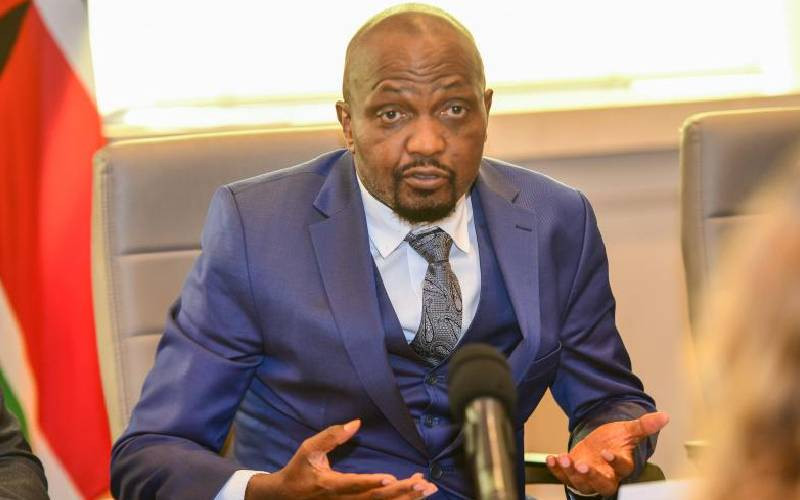The Covid-19 pandemic has brought to light a major weakness in our country’s ability to cushion and protect its people in times of great strife. As the economy suffers and many people continue to lose jobs and businesses to shut down, it has become apparent that the State offers no safety net when people are unable to fend for themselves.
Look at how we initially handled the first people suspected to have had the coronavirus. It was clear that we did not have adequate facilities and even though we had relatively fewer cases than in many parts of the world - we had to resort to sequestering people in hotels, colleges and high school dormitories.
What’s worse is that the government required them to pay for their own upkeep during quarantine - almost irrevocably stigmatising the notion of quarantine and opening it up to misuse by rogue police officers who used it as punishment for those who did not pay bribes.
It is simplistic to say that the challenge lies in the usual scapegoats upon which we lay most public service challenges. “The government has failed,” a columnist would claim. “Rampant corruption” would be a recurring phrase. I submit that it likely goes beyond these simple arguments. At the heart of it is that we have to re-examine the role of government in the management of our economy and public services.
Kenya and many other African countries are free-market economies. In this system, market forces drive everything around us - the availability of food in the shops, petrol for our vehicles and the workforce for our businesses and homes. All we have to concern ourselves with is earning enough money to gain access to these goods and services. The more money you have, the better. That’s what it means to live in a modern economy.
But we have gone too far with privatisation. Today private health service providers, security firms and even water management companies compete for side by side with government service providers. It is not uncommon to find residents of upmarket estates spending hefty amounts every month in service charge that covers the management of common areas including roads and walkways, lighting and borehole water.
Developing countries have taken the advice of international players like the Bretton Woods institutions that they need little control over their economies and they cannot afford to build welfare states. “Don’t worry,” went the advice, “the market will deliver what you need.”
When the markets go haywire as they have now due to Covid-19, the free market system is brought to question. As more and more people suddenly find themselves unable to afford private services due to a precipitous drop in gainful employment, then the role of the State in cushioning them comes into focus.
The government has attempted to respond to this by creating stimulus packages for some areas of the economy such as the Sh100 million work-for-pay package for artists and the ‘kazi kwa vijana’ type national hygiene programme announced recently by the president.
These are emergency interventions. The market fundamentalist looks forward to the day when stay-at-home restrictions are lifted, people go back to work, the stock market barrels back into “bull” mode, and the invisible market forces continue to hum as before.
Unfettered market
However, there have long been moral, social and environmental risks posed by an unfettered market. These risks present a strong case for action by the State – with inequality and climate change being the two most glaring examples.
An idea is fast picking up momentum globally that the time has come for us to review the government’s role. In a recent editorial, the Financial Times, a newspaper that has been the foremost bastion of capitalism and the free-market economy, suggested that government should be a more visible player in the economy.
“Radical reforms – reversing the prevailing policy direction of the last four decades – will need to be put on the table. Governments will have to accept a more active role in the economy. They must see public services as investments rather than liabilities, and look for ways to make labour markets less insecure. Redistribution will again be on the agenda; the privileges of the elderly and wealthy in question. Policies until recently considered eccentric, such as basic income and wealth taxes, will have to be in the mix.”
In Kenya, the time is ripe for us to consider two specific policy directions for the coming decades. First, Kenya has to become a far stronger welfare state that takes care of basic services like universal healthcare and quality education for all.
Stay informed. Subscribe to our newsletter
We should now review the privatisation of key social services and in doing so, public servants have to measure success less by the balance sheets as many parastatals do, and more by the services enjoyed by the public.
The second policy direction is that we must pay special focus to “old school” production of tangible goods such as food and other consumables. We have invested a great deal in creating a very strong service economy bolstered especially by our fairly advanced technology.
But we must now strengthen our ability to infuse technology into strengthening our value chain. We could be using artificial intelligence, for example, to improve the food value chain from farms to value addition (manufacturing) to the market.
To achieve this, the government would need to take bold action to incentivise Kenyans to actualise this. Luckily, we have a track record in taking bold actions in our history.
Mr Kags is a serial social entrepreneur. [email protected]
 The Standard Group Plc is a
multi-media organization with investments in media platforms spanning newspaper
print operations, television, radio broadcasting, digital and online services. The
Standard Group is recognized as a leading multi-media house in Kenya with a key
influence in matters of national and international interest.
The Standard Group Plc is a
multi-media organization with investments in media platforms spanning newspaper
print operations, television, radio broadcasting, digital and online services. The
Standard Group is recognized as a leading multi-media house in Kenya with a key
influence in matters of national and international interest.
 The Standard Group Plc is a
multi-media organization with investments in media platforms spanning newspaper
print operations, television, radio broadcasting, digital and online services. The
Standard Group is recognized as a leading multi-media house in Kenya with a key
influence in matters of national and international interest.
The Standard Group Plc is a
multi-media organization with investments in media platforms spanning newspaper
print operations, television, radio broadcasting, digital and online services. The
Standard Group is recognized as a leading multi-media house in Kenya with a key
influence in matters of national and international interest.









